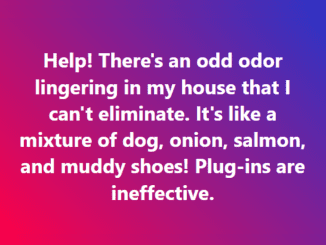
When it comes to skincare, one of the most debated ingredients is alcohol. Some people warn against it, saying it dries out the skin, accelerates aging, and causes irritation. Others argue that alcohol serves important roles in formulations. So, which is it—friend or foe? The truth is that alcohol in skincare can be both good and bad, depending on the type and concentration used.
Why Alcohol Is Used in Skincare
Alcohol isn’t just added for no reason. In skincare products, it plays multiple roles, including:
- Acting as a solvent to dissolve or thin out mixtures
- Helping oils and water blend together as an emulsifier
- Stabilizing formulations to prevent reactions
- Serving as an antiseptic to kill bacteria
- Preserving products by limiting bacterial growth
- Balancing the pH of formulations
- Enhancing penetration of active ingredients into the skin
- Improving fragrance delivery
As you can see, alcohol can be a versatile and helpful component. But the real question is: which kinds of alcohol are safe and which are harmful?
The “Bad” Alcohols in Skincare
Some alcohols are harsh, especially those similar to pure alcohol. They are often added because they dry quickly, absorb easily, or act as strong solvents. However, these alcohols can strip the skin of its natural barrier and cause irritation. Watch out for these names on ingredient labels:
- SD alcohol
- Denatured alcohol
- Isopropyl alcohol
- Ethanol
- Ethyl alcohol
- Benzyl alcohol
Why are these considered problematic? They:
- Dry out the skin
- Disrupt the natural moisture barrier
- Irritate sensitive skin
- Potentially worsen acne
- Contribute to premature aging over time
Although these alcohols help products feel lighter or absorb faster, the trade-off is often long-term skin damage.
Video : Alcohols in skin care products: denatured & fatty alcohols| Dr Dray
The “Good” Alcohols in Skincare
Not all alcohols are bad. In fact, some are incredibly beneficial for your skin. Known as fatty or waxy alcohols, these are usually derived from natural sources like coconut or palm oil. They are non-irritating, moisturizing, and help improve product texture. Look for these skin-friendly alcohols:
- Cetyl alcohol
- Cetearyl alcohol
- Glycol
- Stearyl alcohol
- Behenyl alcohol
- Myristyl alcohol
- Oleyl alcohol
- Caprylic alcohol
Why are these good for your skin? They:
- Provide a smooth, velvety texture
- Act as natural moisturizers
- Help lock in hydration
- Stabilize creams and lotions
- Ensure formulas are the right consistency
These alcohols don’t strip the skin; instead, they actually help strengthen and protect it.
How to Choose the Right Products
Since alcohol can be both helpful and harmful, the key is knowing what to look for on labels. A quick tip: check the first six ingredients of a product. If you see harsh alcohols at the top of the list, the concentration may be too high for daily use. On the other hand, if fatty alcohols are listed, you can feel more confident about the product’s moisturizing benefits.
Also, consider your skin type:
- Oily or acne-prone skin: Avoid harsh alcohols that can trigger more oil production.
- Dry or sensitive skin: Look for fatty alcohols to add moisture and calm irritation.
- Combination skin: Choose balanced formulas with hydrating and protective ingredients.
Video : Is Alcohol in Skincare Bad for Your Skin? | A Biochemist’s Perspective
The Bottom Line
Alcohol in skincare isn’t entirely good or bad—it depends on the type, amount, and your unique skin needs. While harsh alcohols like ethanol and isopropyl alcohol may cause dryness and irritation, fatty alcohols such as cetyl or cetearyl alcohol can be nourishing and beneficial.
The smart approach? Read ingredient labels carefully, choose products that align with your skin type, and whenever possible, opt for formulations with natural, skin-friendly ingredients. Your skin deserves products that support its health, not compromise it.


